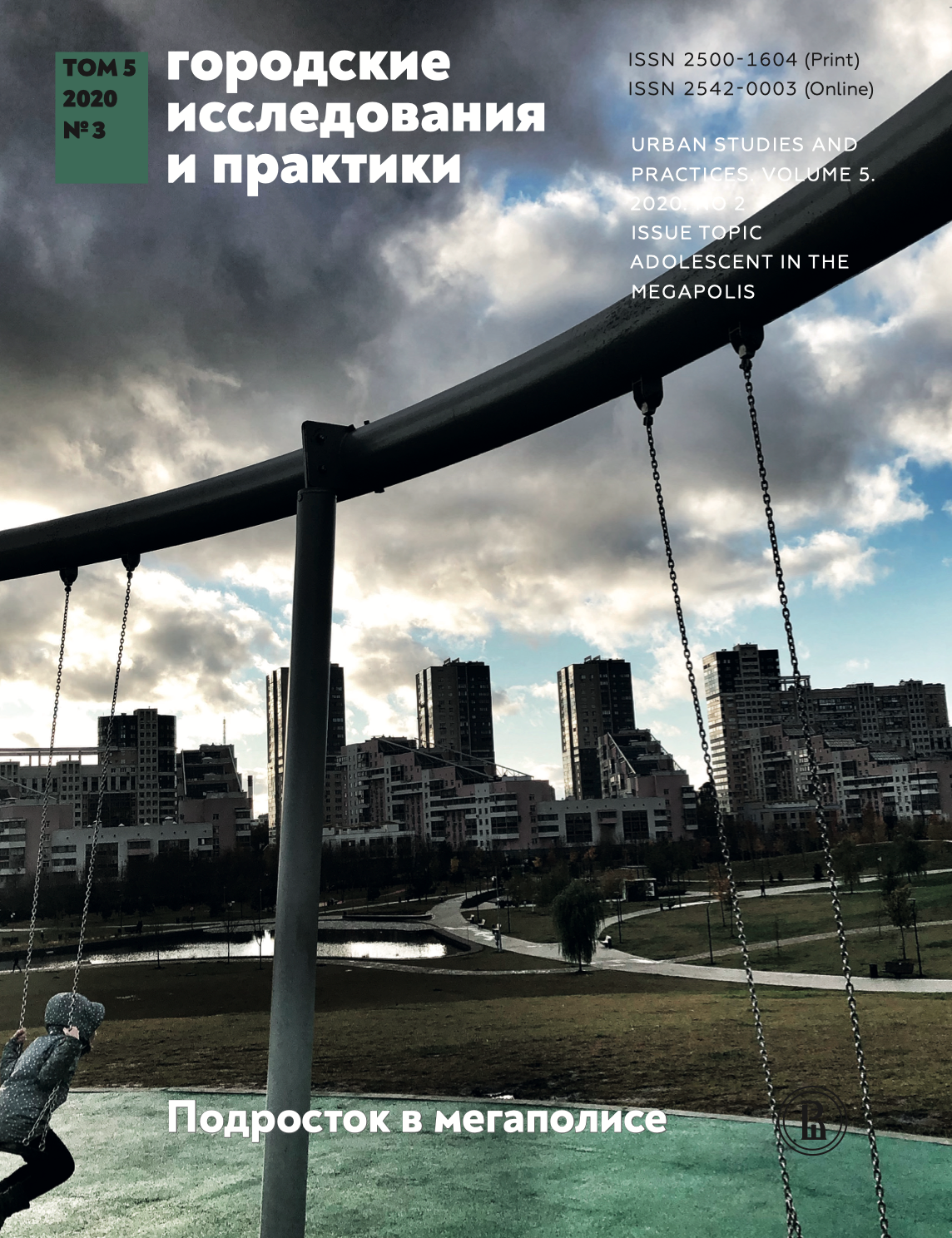Низкопороговый подростковый клуб как элемент городской среды. Дискуссия
Аннотация
Что такое низкопороговый подростковый клуб? Для чего он нужен? Как встраивается в городское пространство? Эта дискуссия проходила весной 2020 года в период самоизоляции на платформе Zoom, когда большая часть рабочих процессов, в том числе психологическое консультирование и работа в подростковых клубах, перешли в онлайн. Переход деятельности из очного взаимодействия в удаленное позволил дистанцироваться от непосредственного опыта. Эксперты отрефлексировали некоторые особенности функционирования клубов как пространств для общения, расположенных на определенных территориях и зависящих от физических и социальных характеристик конкретного района.
В дискуссии обсуждаются особенности работы психологических клубов для подростков, расположенных в двух районах города Москвы: Братеево (юго-восточная часть города, правый берег Москвы-реки, население 110 тыс. чел., 77-е место в Москве по стоимости жилья) и Крылатское (западная часть города, правый берег Москвы-реки, население 83 тыс. чел., 26-е место в Москве по стоимости жилья). Клуб в Братеево был создан в 2015 году и существует в рамках некоммерческой организации «Перекресток Плюс». Подростковый клуб в Крылатском входит в сеть клубов в рамках Городского психолого-педагогического центра (ГППЦ) Департамента образования и науки города Москвы. Этот клуб появился в 2016 году и был первым из ныне функционирующих в ГППЦ клубов (всего их 17).
В качестве формата социальной и психолого-педагогической работы подростковые клубы создавались как площадки для времяпрепровождения, альтернативные улице и подъездам. Подростки могут приходить сюда и проводить время так, как им диктует возраст, без употребления психоактивных веществ и в безопасной обстановке. Основные цели клуба содействие личностному и социально-психологическому развитию подростков, раскрытие их потенциала и поддержка способности позитивно и творчески строить свою жизнь.
Эксперты обсудили, каковы основные возможности подростковых клубов, как происходящее в клубе зависит от того, где он находится, и как может поменяться Москва, если такие клубы появятся в каждом районе.

